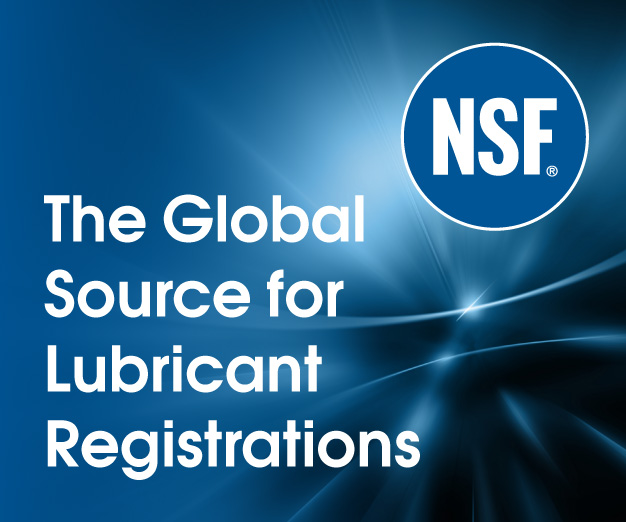Playing it safe: The impact of ISO 21469 certified lubricants on food processors
Only 17% of adults in the United States trust food labelling. That number comes courtesy of the Most Trusted Brands report released in January 2020 by market research firm Morning Consult. This lack of trust, however, goes beyond the U.S. market. Similar research shows only around 15% of Western European consumers trust food labelling.
Accurate labelling affects the food and beverage industry around the world – and not just at the consumer level. It can impact food processors as well, especially when it comes to the lubricants used to keep their machinery running.
In addition to incidental contact, misuse of a lubricant (due to misunderstood instructions) could contribute to the contamination of a product during production. Variances in terminology and unverified claims on labels can also lead to inadvertent confusion as well as costly fines and recalls. Situations like these are why a Global Food Safety Initiative (GFSI) workgroup defined lubricants as one of the key elements in the food supply chain where precautionary measures need to be taken. One such safeguard is certification to ISO 21469, Safety of machinery – Lubricants with incidental product contact – Hygiene requirements.
The ISO 21469 certification mark serves as an extra safety precaution for many food processors. It verifies that a product’s labelling, formulation and manufacturing practices meet the standard’s requirements for food-grade lubricants. The mark confirms the label provides accurate information about the manufacturer, batch-specific identifiers, shelf life and appropriate use guidelines. Certification also demonstrates that testing and auditing were done by an independent, third-party certification body.
A certification body’s perspective
Orsi Dezsi is the Business Unit Manager for nonfood compounds at NSF International, an independent public health organization that operates in 180 countries.
FEI: Why would a food processor put its trust in an ISO 21469 certified product?
Orsi Dezsi: First, as a global standard, ISO 21469 incorporates Good Manufacturing Practices (GMPs) and other procedures that have been adopted internationally. Second, the certification process is very thorough and in-depth. A certification body like NSF International reviews product trade names, ensures required labelling components are present and evaluates ingredient statements, language translations, use instructions and more. Lubricant manufacturers also undergo facility inspection audits to identify and mitigate risks associated with the production of the lubricants. And finally, lubricant samples are independently tested to verify consistency among production batches.
FEI: What is the risk of using non-certified lubricants?
Orsi Dezsi: It really then becomes a buyer beware situation. Besides labelling issues, a manufacturer might not be up to speed with the requirements for products used in food processing. Reviewing, testing and confirming continued compliance to hygiene requirements through certification is one way to provide assurances to your client.
A lubricant manufacturer’s perspective
Pieter-Dave Boekel is Operations Manager at Interflon, a manufacturer of high-performance lubricants, cleaners and hardware. The company operates in more than 50 countries and serves over 135,000 clients.
FEI: What would you want food processors to know about lubricants certified to ISO 21469?
Pieter-Dave Boekel: The reality is, no matter how careful you are, lubricants can still make incidental contact with food products, especially above the production line. Certification lets food processors know Interflon products meet the highest hygiene requirements for formulation, manufacturing, use and handling throughout the lubricant’s entire life cycle. This in turn can help processors reduce their risk of contamination if incidental contact should occur, ultimately protecting consumers from the possibility of eating or drinking a product that has been tainted with a hazardous material.
FEI: As a manufacturer, what other value does certification to ISO 21469 bring to your company?
Pieter-Dave Boekel: Besides quality control, the standard is internationally recognized, so we feel confident about offering our products in many different markets. And not just for food processing purposes. ISO 21469 certification is also applicable to lubricants intended for the cosmetic, pharmaceutical and animal feed industries.
An end user’s perspective
Fred van den Brink is the company director at BioPack Packaging, a manufacturer of biodegradable packaging material for the food sector.
FEI: Why are certified lubricants important to your company’s operations?
Fred van den Brink: We wanted more than assurances about the formulation of a lubricant. We also wanted reassurances about manufacturing and proper labelling. At BioPack Packaging, we believe it is very important that food safety is effectively controlled even before the production process begins. That’s why we chose to use certified lubricants early on, to help minimize crosscontamination risks as much as possible. When we see ISO 21469 certification on a label, we know it has been tested and audited, helping us control the introduction of health hazards during production.
FEI: What role do certified lubricants play in your company’s Hazard Analysis and Critical Control Point (HACCP) plan?
Fred van den Brink: Certified lubricants play a major role when it comes to implementing our risk reduction practices. Not only do ISO 21469 certified products comply with our HACCP requirements, since they have been verified as being safe in case there is incidental food contact, but they allow us to focus our time, energy and resources on other critical control points.
Conclusion
Consumers should be able to trust food labels. At the same time, food processors need to be able to trust the materials involved in the production of their products. When it comes to food-grade lubricants, seeing the ISO 21469 certification mark supports the accuracy of what’s on the label without bias. Just as importantly, certification verifies the formulation, testing and manufacturing practices behind the label as well – protecting both consumers and food processors.


